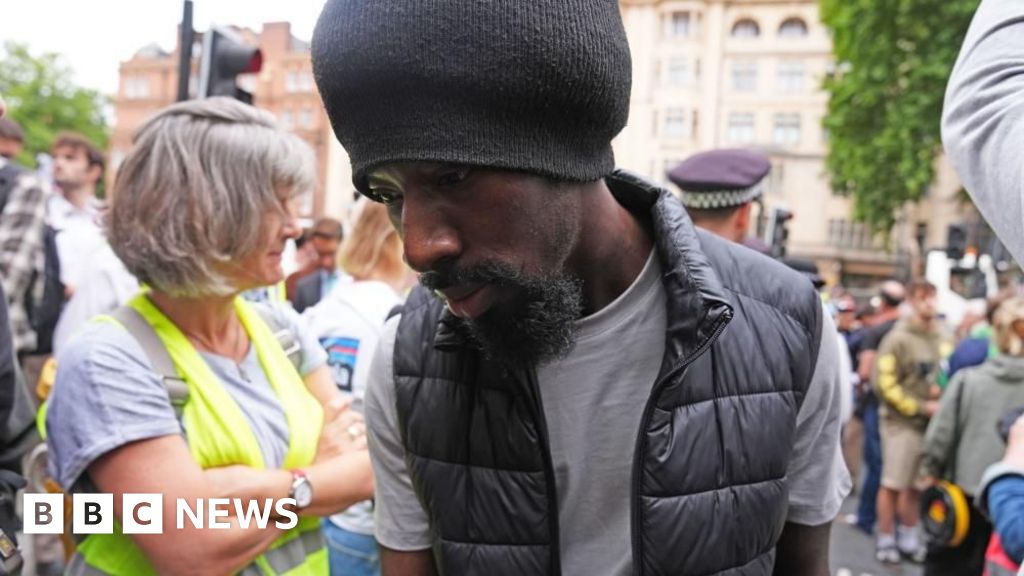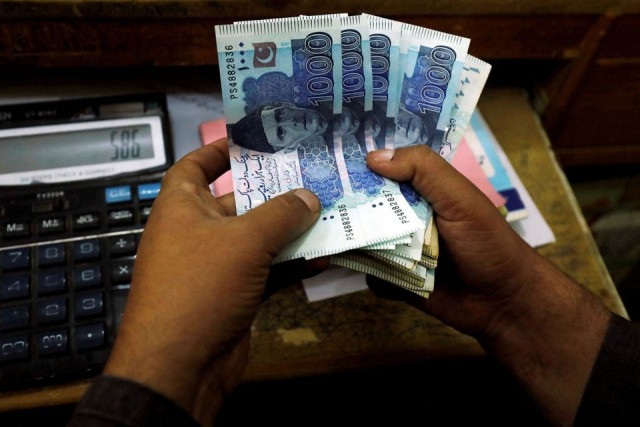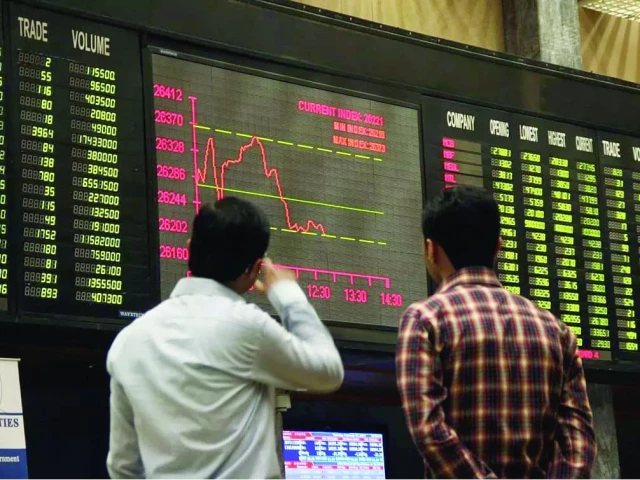Business
Pfizer, Moderna shares fall on report that Trump officials will link child deaths to Covid shots

Vials with Pfizer-BioNTech and Moderna coronavirus disease (COVID-19) vaccine labels are seen in this illustration picture taken March 19, 2021.
Dado Ruvic | Reuters
Shares of Pfizer and Moderna fell on Friday after a report that Trump administration health officials plan to link Covid vaccines to the deaths of 25 children.
The report from the Washington Post said officials plan to include the claim in a presentation next week to a key vaccine panel that advises the Centers for Disease Control and Prevention.That committee plays a critical role in determining vaccine access, as it reviews immunization data and makes recommendations on who is eligible for shots and whether insurers should cover them, among other duties.
But the presentation to that panel is not final, the Post reported.
“FDA and CDC staff routinely analyze VAERS and other safety monitoring data, and those reviews are being shared publicly through the established ACIP process,” a spokesperson for the Department of Health and Human Services said in a statement, referring to the panel, the Advisory Committee on Immunization Practices.
“Until that is shared publicly, any this should be considered pure speculation,” the spokesperson added.
Pfizer’s stock fell more than 3% on Friday, while shares of Moderna dropped more than 7%. Novavax, which creates protein-based Covid shots, slid more than 4%.
The report comes as Health and Human Services Secretary Robert F. Kennedy Jr. moves to change vaccine policy in the U.S. He has dropped Covid shot recommendations for healthy kids and pregnant women and set new limits on the approval of new jabs against the virus.
In a statement, Moderna said the safety of its vaccine is “rigorously monitored” by the company, the FDA and regulators in more than 90 countries. Systems across the U.S., Australia, Canada and Europe have not identified “any new or undisclosed safety concerns in children or in pregnant women,” Moderna added.
Pfizer did not immediately respond to a request for comment.
Numerous studies have demonstrated that shots using mRNA technology, including Covid vaccines from Pfizer and Moderna, are safe and effective, and serious side effects have happened in extremely rare cases.
Researchers have noted an elevated but rare risk of myocarditis, or inflamed heart muscle, in young men in particular. But there is no evidence that the vaccines in use now cause any other major safety risks, including pediatric deaths. Global surveillance data also continue to generally show that the benefits of Covid vaccination outweigh the risks in pediatric populations.
The Washington Post said the claim appears to be based on information submitted to the federal Vaccine Adverse Event Reporting System, which monitors the safety of shots approved or authorized by the Food and Drug Administration. The system contains unverified reports of side effects, including from patients, doctors and pharmacists.
Only scientists and public health officials can determine, after thorough investigation, whether a vaccine caused or contributed to a side effect submitted to the system, according to the CDC website.
Last week, FDA Commissioner Marty Makary told CNN the agency is conducting an “intense investigation” into whether Covid shots have caused deaths in children. He did not share specific data linking pediatric deaths to the vaccine, but pointed to self-reported incidents in the safety system database.
The FDA plans to release a report in the coming weeks, Makary added.
“We do know at the FDA, because we’ve been looking into the [vaccine safety] database of self reports, that there have been children who have died from the Covid vaccine,” Makary told CNN.
During a Senate hearing last week, Kennedy said he supports a statement made by a newly appointed member of a key government vaccine panel that mRNA vaccines pose a dangerous risk to people.
Business
Serial rail fare evader faces jail over 112 unpaid tickets

One of Britain’s most prolific rail fare dodgers could face jail after admitting dozens of travel offences.
Charles Brohiri, 29, pleaded guilty to travelling without buying a ticket a total of 112 times over a two-year period, Westminster Magistrates’ Court heard.
He could be ordered to pay more than £18,000 in unpaid fares and legal costs, the court was told.
He will be sentenced next month.
District Judge Nina Tempia warned Brohiri “could face a custodial sentence because of the number of offences he has committed”.
He pleaded guilty to 76 offences on Thursday.
It came after he was convicted in his absence of 36 charges at a previous hearing.
During Thursday’s hearing, Judge Tempia dismissed a bid by Brohiri’s lawyers to have the 36 convictions overturned.
They had argued the prosecutions were unlawful because they had not been brought by a qualified legal professional.
But Judge Tempia rejected the argument, saying there had been “no abuse of this court’s process”.
Business
John Swinney under fire over ‘smallest tax cut in history’ after Scottish Budget

John Swinney has been pressed over whether this week’s Scottish Budget gives some workers the “smallest tax cut in history” – with Tory leader Russell Findlay branding the reduction “miserly” and “insulting”.
The Scottish Conservative leader challenged the First Minister after Tuesday’s Holyrood Budget effectively cut taxes for lower earners, by increasing the threshold for the basic and intermediate bands of income tax.
But Mr Findlay said that would leave workers at most £31.75 a year better off – saying this amounts to a saving of just £61p a week
“That wouldn’t even buy you a bag of peanuts,” the Scottish Tory leader said.
“John Swinney’s Budget might even have broken a world record, because a Scottish Government tax adviser says it ‘maybe the smallest tax cut in history’.”
Raising the “miserly cut” at First Minister’s Questions in the Scottish Parliament, Mr Findlay demanded to know if the SNP leader believed his “insulting tax cut will actually help Scotland’s struggling households”.
The attack came as the Tory accused the SNP government of increasing taxes on higher earners, with its freeze on higher income tax thresholds, which will pull more Scots into these brackets.
This is needed to pay for the “SNP’s out of control, unaffordable benefits bill”, the Conservative added.
Mr Findlay said: “The Scottish Conservatives will not back and cannot back a Budget that does nothing to help Scotland’s workers and businesses.
“It hammers people with higher taxes to fund a bloated benefits system.”
Hitting out at Labour – whose leader Anas Sarwar has already declared they will not block the government’s Budget – Mr Findlay said: “It is absolutely mind-blowing that Labour and other so-called opposition parties will let this SNP boorach of a budget pass.
“Don’t the people of Scotland deserve lower taxes, fairer benefits and a government focused on economic growth?”
Mr Swinney said the Budget “delivers on the priorities of the people of Scotland” by “strengthening our National Health Service and supporting people and businesses with the challenges of the cost of living”.
He insisted income tax decisions in the Budget would mean that in 2026-27 “55% of Scottish taxpayers are now expected to pay less income tax than if they lived in England”.
The First Minister went on to say that showed “the people of Scotland have a Government that is on their side”.
Referring to polls putting his party on course to win the Holyrood elections in May, the SNP leader added that “all the current indications show the people of Scotland want to have this Government here for the long term”.
Benefits funding is “keeping children out of poverty”, he told MSPs, adding the Budget contained a “range of measures” that would build on existing support.
The First Minister said: “What that is a demonstration of is a Government that is on the side of the people of Scotland and I am proud of the measures we set out in the Budget on Tuesday.”
Meanwhile he said the Tories wanted to make tax cuts that would cost £1 billion, with “not a scrap of detail about how that would be delivered”.
With the weekly leaders’ question time clash coming less than 48 hours after the draft 2026-27 Budget was unveiled, the First Minister also faced questions from Scottish Labour’s Anas Sarwar, who insisted that the proposals “lacks ambition for Scotland”.
Pressing his SNP rival, the Scottish Labour leader said: “While he brags about his £6 a year tax cut for the lowest paid, one million Scots including nurses, teachers and police officers face being forced to pay more.
“Even his own tax adviser says this is a political stunt. So why does John Swinney believe that someone earning £33,500 has the broadest shoulders and therefore should pay more tax in Scotland?”
Mr Swinney, however, said that many public sector workers would be better off in Scotland.
He told the Scottish Labour leader: “A band six nurse at the bottom of the scale will take home an additional £1,994 after tax compared to the same band in England.
“A qualified teacher at the bottom of the band will take home £6,365 more after tax in Scotland than the equivalent in England. There are the facts for Mr Sarwar.”
Business
BP cautions over ‘weak’ oil trading and reveals up to £3.7bn in write-downs

BP has warned it expects to book up to five billion dollars (£3.7 billion) in write-downs across its gas and low-carbon energy division as it also said oil trading had been weak in its final quarter.
The oil giant joined FTSE 100 rival Shell, after it also last week cautioned over a weaker performance from trading, which comes amid a drop in the cost of crude.
BP said Brent crude prices averaged 63.73 dollars per barrel in the fourth quarter of last year compared with 69.13 dollars a barrel in the previous three months.
Oil prices have slumped in recent weeks, partly driven lower due to US President Donald Trump’s move to oust and detain Venezuela’s leader and lay claim to crude in the region, leading to fears of a supply glut.
In its update ahead of full-year results, BP also said it expects to book a four billion dollar (£3 billion) to five billion dollar (£3.7 billion) impairment in its so-called transition businesses, largely relating to its gas and low-carbon energy division.
But it said further progress had been made in slashing debts, with its net debt falling to between 22 billion and 23 billion dollars (£16.4 billion to £17.1 billion) at the end of 2025, down from 26.1 billion dollars (£19.4 billion) at the end of September.
It comes after the firm’s surprise move last month to appoint Woodside Energy boss Meg O’Neill as its new chief executive as Murray Auchincloss stepped down after less than two years in the role.
Ms O’Neill will start in the role on April 1, with Carol Howle, current executive vice president of supply, trading and shipping at BP, acting as chief executive on an interim basis until the new boss joins.
Ms O’Neill’s appointment has made history as she will become the first woman to run BP – and also the first to head up a top five global oil company – as well as being the first ever outsider to take on the post at BP.
Shares in BP fell 1% in morning trading on Wednesday after the latest update.
-

 Politics1 week ago
Politics1 week agoUK says provided assistance in US-led tanker seizure
-

 Entertainment1 week ago
Entertainment1 week agoDoes new US food pyramid put too much steak on your plate?
-

 Entertainment1 week ago
Entertainment1 week agoWhy did Nick Reiner’s lawyer Alan Jackson withdraw from case?
-

 Business1 week ago
Business1 week agoTrump moves to ban home purchases by institutional investors
-

 Sports5 days ago
Sports5 days agoClock is ticking for Frank at Spurs, with dwindling evidence he deserves extra time
-

 Sports1 week ago
Sports1 week agoPGA of America CEO steps down after one year to take care of mother and mother-in-law
-

 Business1 week ago
Business1 week agoBulls dominate as KSE-100 breaks past 186,000 mark – SUCH TV
-
Sports6 days ago
Commanders go young, promote David Blough to be offensive coordinator











